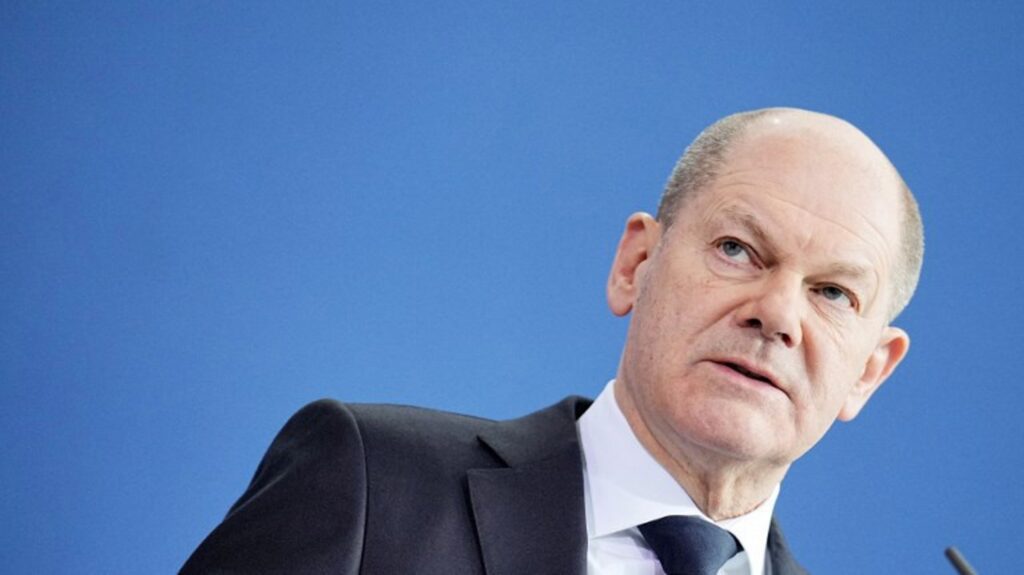German Chancellor Olaf Scholz had a phone call with Vladimir Putin on Friday. He urged the Russian President to withdraw his troops from Ukraine and negotiate with Kiev.
Putin reiterated that any agreement must reflect the “new territorial realities,” according to the Kremlin, which described the one-hour conversation as “frank and detailed.”
Scholz emphasised the EU’s unwavering commitment to Ukraine and requested that Russia show a willingness to enter into negotiations for a just and lasting peace, according to a statement from the German government. The German chancellor had previously spoken with Ukrainian President Volodymyr Zelenskyy and plans to do so again following the call with Putin.
Scholz reaffirmed Germany’s determination to support Ukraine in its defensive struggle against Russian aggression.
Moving in Trump's shadow
The last call between the German and Russian leaders was on 2 December 2022, nine months after Russia’s invasion of Ukraine on 24 February 2022. Since the invasion, Germany – historically an energy partner of Russia – has become the second-largest provider of military aid to Kyiv after the United States.
However, despite repeated requests from Zelenskyy, Scholz has consistently refused to supply Kyiv with long-range Taurus missiles, fearing an escalation with Moscow. This decision, along with Scholz’s rejection of Ukraine’s request for NATO membership, has tarnished his image in Ukraine.
Adding to the geopolitical uncertainty, Donald Trump's re-election complicates issues. Trump has promised to resolve the conflict within “twenty-four hours” without explaining how. His statements have raised concerns among Ukrainians about waning American support.
Scholz has called for greater efforts to end the conflict diplomatically, in consultation with Kyiv and its allies, including discussions with Putin. In mid-October, the German Chancellor said that everything possible must be done to prevent the war from continuing, while clearly supporting Ukraine.
He stressed that any discussions must adhere to clear principles: “There will never be decisions made over Ukraine’s head, and never without consulting our closest partners.”
Any hope in dialogue?
Most Western leaders, including Joe Biden and Emmanuel Macron – with the notable exception of Hungarian Prime Minister Viktor Orban – refuse to speak with Putin. In early November, Putin lamented that Western leaders had “stopped” calling him. “If any of them wishes to resume contact, I have always said and want to repeat: we have nothing against it,” Putin said.
Russia regularly claims to be open to peace negotiations but demands concessions from Kiev, specifically the cession of Ukrainian territories annexed by Moscow in 2022, a condition Ukraine currently finds unacceptable.
Over a million Ukrainian refugees are seeking refuge in Germany. Thousands of Russians are also living in Berlin, making it an informal capital of Russian exiles.
The war has prompted Scholz to enact a historic shift in Germany’s defence policy, leading to a massive increase in military spending in a largely pacifist country.
Military and financial support for Kyiv, along with Germany’s defence policy, will be key issues in the upcoming snap general election on 23 February.

